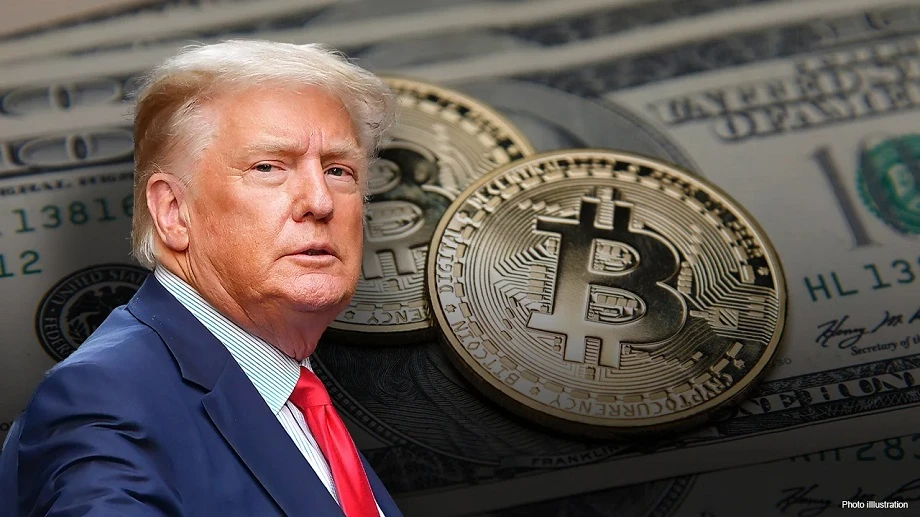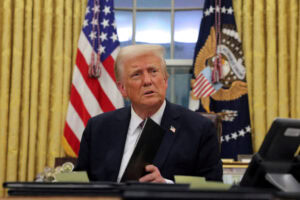ISLAMABAD/London March 17: The establishment of a “Strategic Bitcoin Reserve” by the United States has sparked both support and concern, with some praising it as a step toward legitimizing the cryptocurrency sector. While others express unease, particularly regarding the handling of bitcoins seized from hacks.
Earlier this month, President Donald Trump signed an executive order creating the reserve, which White House crypto chief David Sacks described as “a digital Fort Knox,” drawing parallels to how gold is stored at the U.S. military base.
Just as gold has been held in reserves globally as a safe-haven asset to shield against financial instability, the U.S. government plans to leverage bitcoin in a similar manner.
Gold has long been seen as a way to stabilize currency, particularly during times of economic uncertainty, such as when Trump’s tariffs sparked concerns.
The price of gold has surpassed $3,000 per ounce, benefiting from the tumultuous economic landscape.
Digital Assets: How Will the U.S. Bitcoin Reserve Work?
The reserve will be initially funded by approximately 200,000 bitcoins, seized in civil and criminal cases, which are valued at around $17 billion.
The government will be able to add more bitcoin to the reserve as long as it doesn’t affect the federal budget. Following the announcement, the price of bitcoin initially fell but later stabilized.
Read More: Bitcoin Tumbles to New 2024 Low – What’s Next?
While the creation of the reserve is seen as a significant step by many in the crypto industry, some analysts, like Dessislava Aubert of Kaiko, argue that the U.S. government is legally obligated to return bitcoin to victims of cybercrimes, such as those affected by the 2016 Bitfinex exchange hack.
Aubert believes that a substantial portion of the 198,000 bitcoins seized by the U.S. would have to be returned to these victims.
In addition to bitcoin, other cryptocurrencies like Ether, XRP, Solana, and Cardano may be included in the reserve, as per Trump’s executive order.
However, there is criticism that, unlike gold, cryptocurrencies are volatile assets with no intrinsic value.
Also Read: Bitcoin Hits New All Time High, Surges Past $75,000 Amid US Election Odds
Despite these concerns, David Sacks is optimistic that holding bitcoin over time will help mitigate its volatility, ensuring the government’s long-term protection from market fluctuations.
Some, like Stephane Ifrah, investment director at Coinhouse, argue that, much like gold, bitcoin’s limited supply—capped at 21 million tokens—could provide an inherent value.
One potential advantage of the U.S. Bitcoin Reserve is its transparency. Unlike gold reserves, which are not always fully disclosed, the amount of bitcoin held in the reserve will be publicly known at all times, providing greater visibility and accountability.









